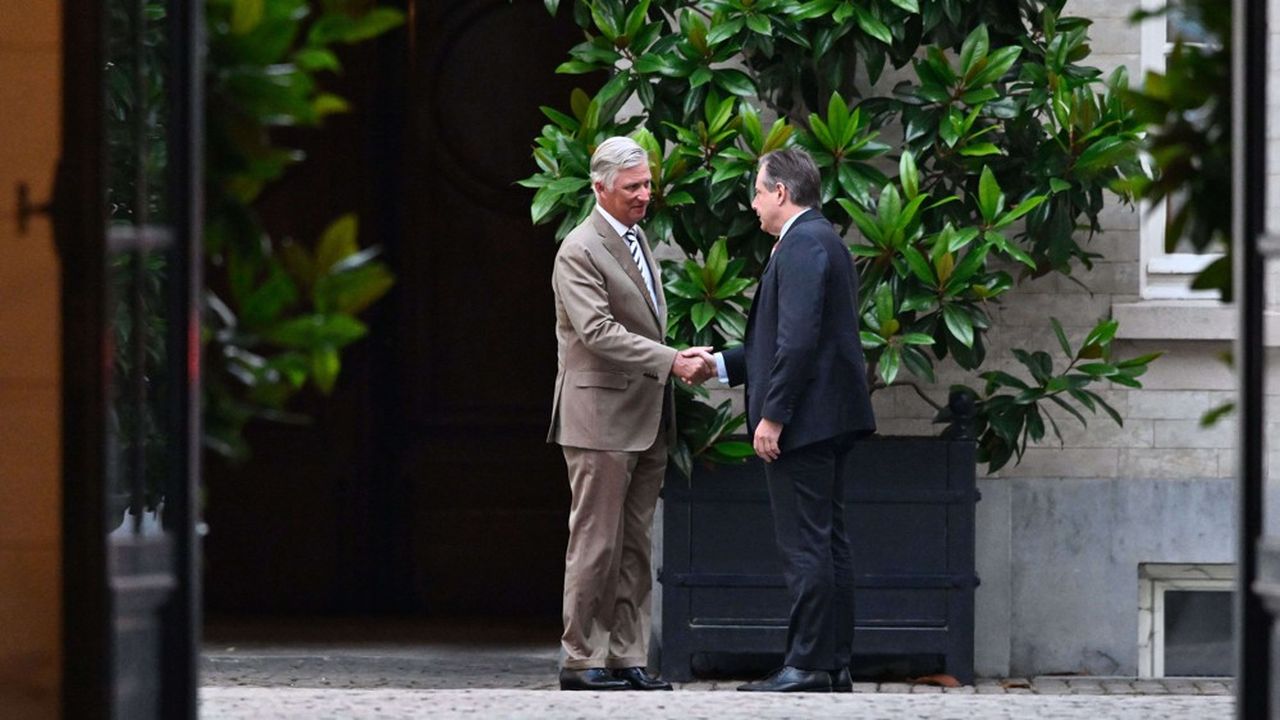
It won’t be this time. A first round of negotiations, launched on July 10 with a view to forming a government in Belgium, failed on Thursday August 22, two and a half months after the legislative elections which were held at the same time as the European elections.
Bart De Wever, leader of the Flemish nationalist party (N-VA), which came out on top in the June election, handed over his mandate as chief negotiator (“formateur” in Belgian political lexicon) to King Philippe, who had given it to him in July. He failed to build an agreement with the four other Belgian parties that seemed willing to work together.
These are the liberals of the Reform Movement (MR), the centrist party Les Engagés and, on the Dutch-speaking side, the Christian Democrats (CD & V) and Vooruit, the former Flemish Socialist Party. The five parties together hold 81 of the 150 seats in the Chamber of Deputies. Their association, which would be unprecedented, has been named “Arizona”, because their combined colours evoke those of the flag of the American state.
Disagreement over financial gains
King Philippe will, as of this Friday, begin new consultations “with the presidents of the five parties involved in the negotiations for the formation of a new government,” the Royal Palace said. We are therefore remaining in an “Arizona” configuration.
Summer talks stalled over tax issues, with French-speaking liberals rejecting a proposal for a capital gains tax on financial assets championed by Flemish socialists.
Belgium needs to replenish its coffers. In 2023, it had a public deficit of 4.4% of its gross domestic product (GDP), well above the 3% ceiling provided for by the European Stability Pact. It is therefore one of the seven EU Member States (like France) against which the European Commission opened a procedure for “excessive deficit” in June.
European deadlines
Like France, it is supposed to submit a multi-year budget consolidation plan to Brussels by the end of September. And, as for Paris, this deadline seems difficult to achieve. Capitals that do not respect the new governance rules adopted last April are exposed to financial sanctions.
“As chairman of the N-VA, Bart De Wever remains convinced of the need for a genuine recovery and reform government to protect Flemish prosperity and avoid European sanctions due to the federal budgetary slippage,” the N-VA general staff said on Thursday.
Belgium has also not designated the person who will occupy its seat as commissioner in the new European executive. Member states have until August 30 to indicate their choice to Ursula von der Leyen, who was reappointed in July for a second term.
Fragmented landscape
The kingdom is accustomed to long periods of “caretaker” government because the fragmentation of the political landscape makes it difficult to build coalitions. Outgoing Prime Minister Alexander De Croo led a seven-party alliance. Belgium had gone 541 days without a full government in 2010-2011.
The June 9 elections led to a shift to the right of the country’s political center of gravity, particularly marked in Wallonia, traditionally a left-wing region. Bart De Wever, mayor of Antwerp, the country’s second city, would have been the first federal head of government from the N-VA.
Regional autonomy
There is nothing to prevent him from being appointed Prime Minister in the end, even after the failure of the first negotiations. The N-VA is affiliated, within the European Parliament, to the Eurosceptic ECR group dominated by Giorgia Meloni’s Fratelli d’Italia. But the “traditional” political groups consider the Flemish party “acceptable” and work with it, occasionally, on certain texts.
The N-VA was already associated with power between 2014 and 2018 but, long controversial, it never obtained the post of Prime Minister. It does not demand the division of Belgium, but “a maximum degree of autonomy” for the regions of Flanders and Wallonia so that they can lead “a policy that is tailored to their own community”.




